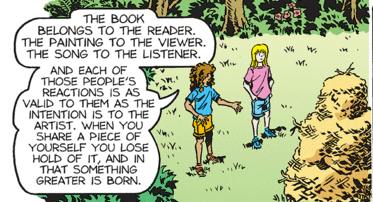Thanne longen folk to goon on pilgrimages. Geoffrey Chaucer said that about 600 years ago as part of the prologue to the Canterbury Tales, the first writing we would recognize as English. I believe it. What would life be worth if it weren’t a pilgrimage? Every day. I hope you will join my pilgrimage. I’m writing a book … well, several. Writing is pilgrimage, and I’ll need sustenance along the way. I hope you will follow along, comment, help lead me. C’mon, it will be an adventure …
Abolish weekends
My friend and fine writer Tim Mahoney, who has slung needed mud at my last two novels (always gracefully), has a deep idea:
by Tim Mahoney

I hereby propose to abolish weekends.
Nope, this is not a call to drag workers back to 19th Century standards, when they were lucky to get a Sunday off.
This is simply the recognition that the weekend has kept us in bondage long enough.
Consider:
Every Friday, American workers start sneaking out at the morning coffee break. More follow at lunch, more still at the afternoon coffee break. By quitting time, only the temps and new hires remain, surfing the shopping, gambling and porn sites, as their betters drive for the beaches and lakes.
Every Saturday the amusement parks, beaches, camping sites, etc are crowded with desperados trying to cram a week’s worth of pleasure into a few frantic hours.
On Sunday afternoon, the highways are jammed with broken heroes debating whether to call in sick tomorrow. At sundown begins an unholy ritual, the Sunday Blues.
View original post 771 more words
What does it mean to teach?
A story from a fellow writer. Couldn’t pass up its artistry, its sadness, and its truth.
Resistance is Always On My Mind
In my third year of teaching one of my students, Jorge Cruz, drew something amazing for me (while serving a detention I assigned him). With just a pencil, on an oddly shaped piece of poster paper, he detailed a brilliant close up of the face of an Aztec Warrior. There are so many amazing things in this piece. The face is at once uncomfortably close, like a camera just off the tip of someone’s nose, and still distant with dark, pupil-less eyes, that stare past you no matter where you stand. It is a face both incredibly bold and proud, but deeply sad, that seems to peer into the certain tragedy of his people’s past, and their uncertain future. I felt instantly overwhelmed by the power of his art, art he created quietly as he waited out the clock in penitence for an offence I can’t even remember.
Perhaps it’s…
View original post 618 more words
New book! A Poetry Collection
From a novelist in a critique group I’m in. Didn’t know she’s a poet AND a visual artist, too!
Exciting news! On November 20, 2016, I had the honor of publishing my first book!! Check out the e-book or print edition on Amazon.
New book! A Poetry Collection
Exciting news! On November 20, 2016, I had the honor of publishing my first book!! Check out the e-book or print edition on Amazon.
Source: New book! A Poetry Collection
New book! A Poetry Collection
Exciting news! On November 20, 2016, I had the honor of publishing my first book!! Check out the e-book or print edition on Amazon.
Source: New book! A Poetry Collection
I’m Moving
I am ‘migrating’ my site from WordPress.com to WordPress.org.
I am being warned that e-mail followers of the blog may be lost in the process. I will try very hard, loyal followers, to prevent this from happening. But we are, after all, living in cyberspace, where “no problem”,”easy conversion”, and “effortless” usually mean just the opposite.
I will publish a post on the new site as soon as possible. If you don’t see a post by September 14th, please go looking for http://www.johnbairdrogers.com.
And thank you all, e-mail subscribers or not, for following and commenting!
The Writing Paradigm
Ponderous title, no?
The paradigm of writing has been one of my discoveries, the kind that slaps you upside the head and then laughs at you when you look back over your benighted stumble toward understanding and realize that it was always there, obvious. You were just too dense to see it.
 Webster’s defines paradigm as “a framework containing the basic assumptions, ways of thinking, and methodology that are commonly accepted by members of a scientific community.” The OED weighs in less ponderously than one might have expected, “A worldview underlying the theories and methodology of a particular scientific subject.”
Webster’s defines paradigm as “a framework containing the basic assumptions, ways of thinking, and methodology that are commonly accepted by members of a scientific community.” The OED weighs in less ponderously than one might have expected, “A worldview underlying the theories and methodology of a particular scientific subject.”
I should have reflected on the definition. Strike the ‘scientific’ and you realize that paradigms are ubiquitous: everything from religion to sandwich-making at Subway has its paradigm. And, as I realized over time, I was light on the ‘methodology’ part of the writing paradigm.
When I began, I thought writing was made up of story-telling and mechanics. I quickly learned (i.e., was corrected) that what I called story-telling is Voice, a somewhat mystical characteristic. Part in-born talent, part life experience, the experts intoned. Not something one can learn by rote. Asked for more specifics, the experts universally mumble something about it having to do with the wealth on one’s life experience and … read a lot. I kind of get it.
I had a rock-solid control of grammar and vocabulary (or so I thought). English major, you know. I had read a lot. Couldn’t do much to influence that ineffable quality called Voice. So what more did I need?
Well, a lot. I’ll call it Technique, the methodology of writing. It is the part I’m learning from other writers. It’s the not-so-obvious superstructure of the story that allows the reader to follow comfortably, the choice of point of view and tense, the way characters and time sequences are introduced. Thankfully, this is stuff one can learn.
It does make it hard, though, to do a rewrite on one’s magnum opus and realize just how much one has to learn. Always the optimist, I look forward to the next epiphany.
Art, Wisdom, and the Comics
 I must admit that I glance at the front page of the paper, scan the news of the day and go to the comics page for wisdom.
I must admit that I glance at the front page of the paper, scan the news of the day and go to the comics page for wisdom.
So, here you have it. We writers often miss this truth, vainly trying to lock the reader into our own special vision.
(from http://www.sallyforth.com)
Overhead
Overhead: That concept they lay on you at the auto dealership when you wonder why it costs $70 per hour to fix your car.
Overhead: A life concept I too often ignore.
I digress today from writing about writing per se to talk about the real-world business of writing. Specifically, is this new age better? Or just different?
Surely, we have resources we never had before. Google maps, Wikipedia, thousands … nay millions … of specialized websites. I said in the last post that I was able to scope out and define a little town in Austria right from my comfortable chair in Minnesota.
Wonderful, but …
- Arriving home from a trip abroad, my good old HP printer doesn’t print. Turns out Apple’s latest update of its OS is probably the problem. That cost three hours and led to a new printer.
- WordPress.com explains that my podcast hasn’t passed through to iTunes, depriving it of 80% of its listeners. Nobody knows quite why. I’m looking into a separate website. Several hours squandered there.
- Audible/ACX, the Amazon audiobook service, hasn’t responded after having told me there’s “electrical noise” in my audition file. Serializing the first novel as a podcast is on hold.
Overhead!
I don’t know about you, but I realize I should allow for all this overhead when I set my expectations about what this wonderful world of technology promises.
Fiction and reality
I have just returned from a trip to reality.
In my second novel, a main character is drugged and pushed off a Danube river boat. She ends up in a little town at the eastern edge of Austria called Hainburg an der Donau.
With my Internet resources, I was able to see a Google World view of the town, locate the hospital in it, observe the uniform of Austrian policemen, calculate the actual speed of the boat after it left Vienna for a trip to Budapest, view a plan of a boat similar to my fictional one. I knew the depth and temperature of water in late June, and I knew that a single screw (propeller) would most likely not drag an unconscious person through its blades. More than enough information to write a credible story, right?
A little over a week ago, my wife and I had dinner in V ienna with several friends from my former business life. Over a very nice glass Grüner Veitliner, I allowed as how I planned to ride the train to Hainburg the next day. Chuckles. Well, I said, part of my novel takes place … Outright laughter. “In Hainburg?” they asked, with the same inflection a Manhattanite would use to describe central North Dakota.
ienna with several friends from my former business life. Over a very nice glass Grüner Veitliner, I allowed as how I planned to ride the train to Hainburg the next day. Chuckles. Well, I said, part of my novel takes place … Outright laughter. “In Hainburg?” they asked, with the same inflection a Manhattanite would use to describe central North Dakota.
I mentioned that I had written ahead to the Tourist Bureau there (not-so-stifled laughter) and received a long German reply to my request to visit the police station. The Tourist Bureau had summed it up in four English words: “It is not possible.”
My friends Werner and Tina took pity on us and drove us to Hainburg the next day.
The town was substantial, but definitely in the sticks, at least to my sophisticated city-dwelling friends. The hospital was far more substantial than I expected, and its design would not have allowed the story line as I had written it. The police department, the one which was “not possible” to see, produced a constable very like my fictional one and an interior design that made what I had written plausible.
I will make some revisions, but fiction is fiction. The lovely little town Hainburg an Der Donau with be portrayed, umm, a little inaccurately.




